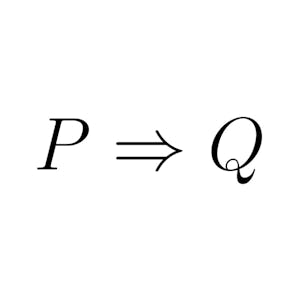Logic for Economists is a crucial course offering a brief yet comprehensive introduction to fundamental mathematical concepts, including propositional and predicate logic, set theory, number systems, and proof techniques.
Through this course, students will develop the ability to detect logical structures behind simple puzzles, manipulate logical expressions, explain the connection between logic and set theory, recognize different proof techniques, and understand the differences between natural, integer, rational, real, and complex numbers.
Certificate Available ✔
Get Started / More Info
Logic for Economists comprises modules introducing propositional and predicate logic, set theory, number systems, and proof techniques. Students will explore various mathematical concepts essential for economic analysis.
The Introduction module provides an overview of the course, setting the stage for the subsequent topics to be covered.
The Propositional Logic module delves into the building blocks and basic operations of propositional logic. It covers De Morgan's laws, logical knots, and transformations, equipping students with essential skills for logical reasoning.
The Predicate Logic, Set Theory, and Functions module introduces predicate logic, set notation, and functions. Students will gain insights into functions and their graphs, understanding the significance of predicate logic in set theory.
The Numbers module explores different number systems, including natural, integer, rational, real, and complex numbers. This module equips students with a comprehensive understanding of the various types of numbers and their applications in economics.
The Proofs module covers different proof techniques, enabling students to develop rigorous reasoning and logical argumentation skills essential for economic analysis and problem-solving.
The Final Test module assesses the students' understanding of the course material, providing a comprehensive evaluation of their knowledge and skills acquired throughout the course.
This specialization in Differential Calculus through Data and Modeling equips students with the tools to use calculus for data analysis and scientific modeling across...
Statistical Learning for Data Science equips you with advanced techniques for model selection, regression, classification, and more, enhancing your expertise in...
Funciones algebraicas y trascendentes es un curso que explora funciones polinomiales, racionales, con radicales, exponenciales, logarítmicas y trigonométricas,...
Traitement d'images: introduction au filtrage is an interdisciplinary course covering image processing fundamentals, from mathematical concepts to practical applications....